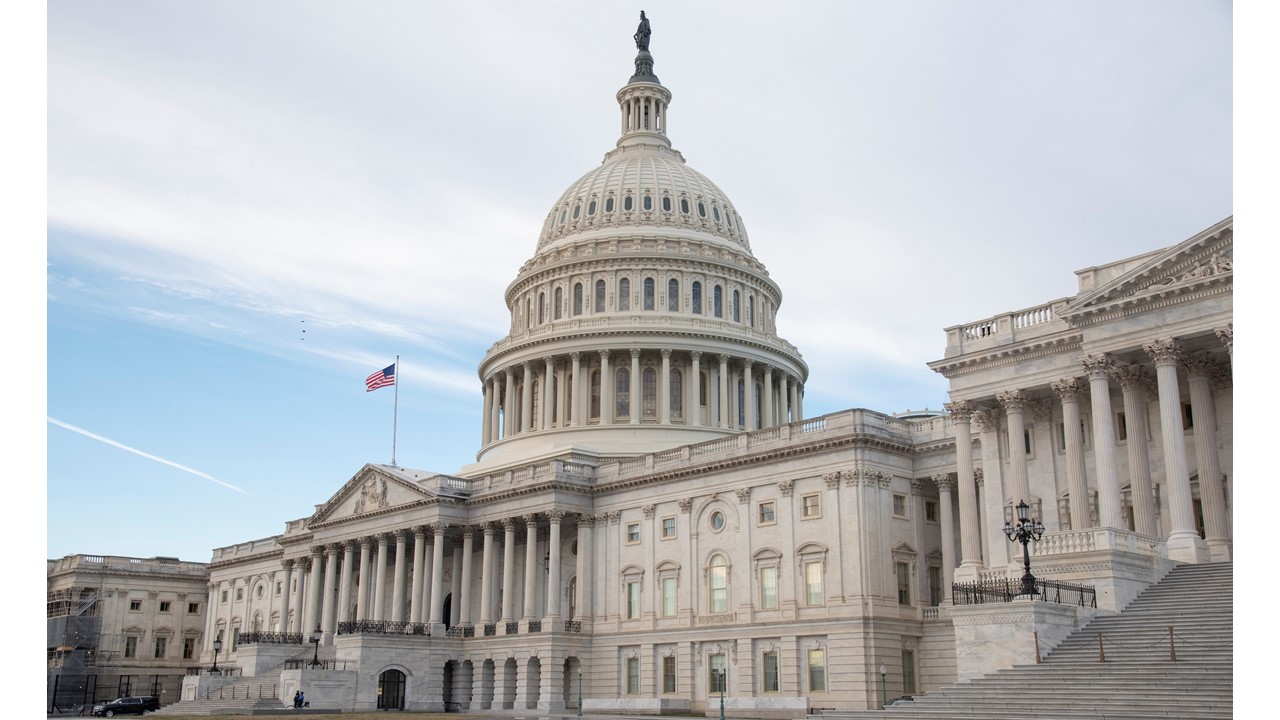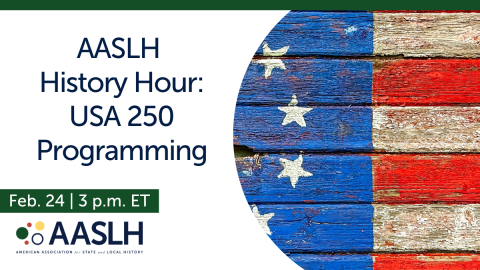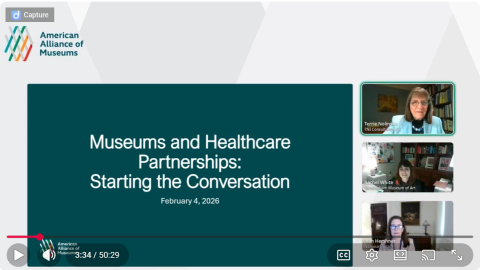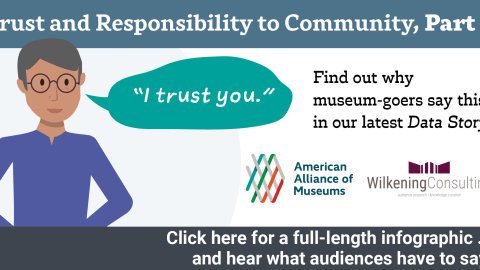
Support Field-Wide Advocacy for Museum Relief:
The current crisis is taking a distressing financial toll on cultural organizations, and AAM is no different. In these challenging times, we ask that if you can, consider supporting our advocacy work and making extensive COVID-19 resources freely available for our field, by making a donation or becoming a member of AAM. Thank you for your much-needed support.
Advocacy Alert – July 13, 2020
In this Alliance Advocacy Alert
- Urge Congress to Support Emergency Funding For Museums Impacted by COVID-19
- #Relief4Charities Week of Action
- Legislative Updates
Urge Congress to Support Emergency Funding For Museums Impacted by COVID-19
With Congress expected to negotiate the next pandemic economic relief package before the August recess, we must continue to make our voices heard to our members of Congress in support of museums.
Even if you already have done so, please contact your legislators now to let them know what your museum is facing and urge them to provide emergency funding for museums’ COVID-19 economic relief.
CONTACT CONGRESS ABOUT ECONOMIC RELIEF FUNDING
The nation’s museum community is facing an existential threat from the closures required as a result of the COVID-19 pandemic. Museums anticipate closures and reduced visitorship through 2020 and into 2021. Normal revenue from admissions fees, retail sales, and event rentals have effectively ceased, and charitable contributions are expected to continue to decline dramatically. Preliminary data from an American Alliance of Museums survey shows that nearly 20% of museums face a significant risk of closing permanently. Nationwide, museums are losing at least $33 million a day due to closures and are in desperate need of significant federal support to maintain jobs, secure our cultural heritage, help to rebuild our nation’s tourism industry – and simply to survive the months to come. Addressing this threat requires decisive action from the U.S. Congress beyond previous economic relief legislation.
As your legislators consider the next round of COVID-19 economic relief legislation, we urge Congress to:
- Continue Emergency Funding Programs that provide nonprofits, including museums, with critical financial support enabling them to serve their communities during the pandemic and to support recovery and rebuilding efforts.
Our requests: (1) Extend and expand the Paycheck Protection Program (“PPP”) by enabling a second round of funding for all nonprofits, including museums, and make eligible nonprofit organizations with greater than 500 employees; and (2) Enact and expand grant and funding programs, such as the proposed WORK NOW Act or the Employee Retention Tax Credit, to help nonprofits retain employees, scale service delivery, and create new jobs. PPP has been a lifeline for many museums and their employees but that lifeline has run out for many without Congress authorizing additional forgivable loans for current borrowers.
- Provide Low-Cost Loans to Mid-Size and Larger Nonprofits which have not been able to access government funding. Nonprofits with 500 or more employees, including museums, are currently completely shut out of the two most important sources of COVID-19 financial support: the PPP and the Federal Reserve Main Street Lending Program (“MSLP”). The recently proposed “nonprofit” MSLP contains numerous financial restrictions and lacks the forgivable feature of PPP, making it unattractive to most organizations that it would be targeted to support.
Our requests: (1) Authorize and require the Federal Reserve to quickly finalize a nonprofit lending facility under MSLP that is tailored to accommodate mid-size nonprofits including language similar to H.R. 6800 that offers a loan forgiveness option; and (2) Extend eligibility of PPP to all nonprofits of all sizes similar to H.R. 6800 and lift the loan cap to appropriately reflect the operational needs of these nonprofits.
- Provide Emergency Supplemental Funding for Museums. Museums are navigating complex decisions related to planning and preparing for phased reopenings, and struggling with how and when to do so. Even museums that have reopened are operating at reduced capacity, meaning that a return to normal operations and revenue will likely take months or years. In addition, museums are facing the substantial increased costs of health and safety upgrades needed to protect staff and visitors from the spread of COVID-19. Museums are actively supporting the ongoing education of our nation’s children by providing lesson plans, online learning opportunities, and drop-off learning kits to teachers and families, and serving their communities in numerous other ways. But these institutions require additional funding to continue serving their communities in these uncertain times. Museums are pivotal to our nation’s ability to manage through the pandemic and recover from it as our nation opens back up.
Our request: Allocate $6 billion specifically for museums, to be administered by the IMLS – Office of Museum Services, including for general operating support, assisting museums in developing and sharing distance learning content, and pandemic recovery planning and implementation, including improvements to protect employees and visitors and reduce the spread of COVID-19.
- Strengthen Charitable Giving Incentives to encourage all Americans to help their communities during these challenging times through charitable donations. Donations are especially needed today as nonprofits respond to the current health and economic crisis and will be critical in the future as nonprofits play an essential role in post-pandemic recovery efforts.
Our requests: (1) Expand the above-the-line or universal charitable deduction in the CARES Act by enacting the provisions in S. 4032/H.R. 7324, increasing the amount to one-third of the standard deduction; and (2) Extend this and the giving incentives enacted in the CARES Act through 2021.
- Provide Full Unemployment Benefit Reimbursement to nonprofits that self-insure these benefits. Federal and state laws give nonprofits the option of operating as self-insured (“reimbursing”) employers that make payments to their state unemployment insurance systems for benefits attributable to them in lieu of advance contributions. Shut-down orders by government officials and program cancellations have forced nonprofits to furlough or lay off staff, triggering immediate, catastrophic unemployment payment bills that are due this month in most states. These challenges are exacerbating cash flow difficulties at a time when other employers will likely experience little or no additional costs resulting from COVID-19-related layoffs and are diverting valuable funds from mission-based services.
Our requests: Increase the federal unemployment insurance reimbursement for self-insured (reimbursing) nonprofits to 100% of costs.
Here are additional Talking Points you can use in making your case to elected officials. You can also use our Letter to the Editor Template to share the message with your local news media.
#Relief4Charities Week of Action
This Alliance Advocacy Alert coincides with and amplifies the #Relief4Charities Week of Action advocacy campaign. A coalition of more than 30 national nonprofit organizations, including the American Alliance of Museums, are coming together for a week of action July 13-17, 2020 to urge Congress, via briefings for Capitol Hill staff and coordinated advocacy efforts, to support nonprofit policy proposals in the next round of COVID-19 relief legislation. More information about this advocacy campaign is here.
Legislative Updates
PPP Extension: The president signed legislation into law on July 4 to extend the window for PPP applications. The legislation eliminated the June 30th deadline for new applicants who have not received PPP funds to apply and established August 8th as the next deadline for applicants seeking aid. PPP has served as a lifeline for many museums. The Alliance encourages museums who have yet to apply to consider doing so. More information about the program can be found on the Alliance’s Finding financial relief and support (for individuals and institutions) page.
Appropriations Update: Good news on the regular appropriations front for FY 2021. House consideration at the committee level has begun in earnest. This is just the beginning of the process with a long way to go, but so far several programs of importance to museums would receive increases if these amounts are enacted:
- $41.5 million for the Office of Museum Services at the Institute of Museum and Library Services, an increase of $3 million above the FY 2020 enacted level. The President’s budget request proposes to eliminate IMLS.
- $170 million each for the National Endowment for the Arts and the National Endowment for the Humanities, an increase of $7.75 million above the 2020 enacted levels and rejects the President’s budget request proposal to eliminate the Agencies.
- $136 million for the Historic Preservation Fund, an increase of $18 million above the FY 2020 enacted level and $96 million above the President’s budget request. Within this amount, the bill includes $71 million for State and Tribal Historic Preservation Offices ($4.6 million increase), $25 million for Save America’s Treasures grants ($9 million increase), and $22 million for competitive grants to preserve the sites and stories of underrepresented community civil rights ($3.2 million increase).
The FY 2021 appropriations process is in the early stages in the House, has yet to begin in the Senate, and likely will not be finalized until December. It’s critical, however, that museum advocates continue to communicate with their legislators throughout this process.
Thank you for your ongoing advocacy for museums.








It is critical that our museums and zoos be helped in this time of need.
Please support this!
I am encouraged to read that Congress is going to help support our museums. I hope when you do, that you look at the small complexes so dependent on visitors. Oregon DAR operates the Newell Pioneer Village in St. Paul, OR. This museum celebrates and teaches about the pioneers of the mid-1800’s. The Robert Newell House was his home while he was helping organize the territory and state and his story is told to visitors and school children. Children make candles, pioneer toys, use a quill to write and take part in a ‘scavenger hunt’ for artifacts. The Pioneer Mother’s Cabin honors those brave women who crossed the country with wagon trains and set up housekeeping in the west. Activities within the cabin are bread making, wool carding and washing on a scrub board. The Butteville School shows and demonstrates how children were taught in the 1850’s. The school marm has students use slate and chalk and read from 1850’s readers. However, without income, the village has been closed since March. Your consideration would bring the museum alive to again be a place to teach our history. Thank you for your serious consideration.